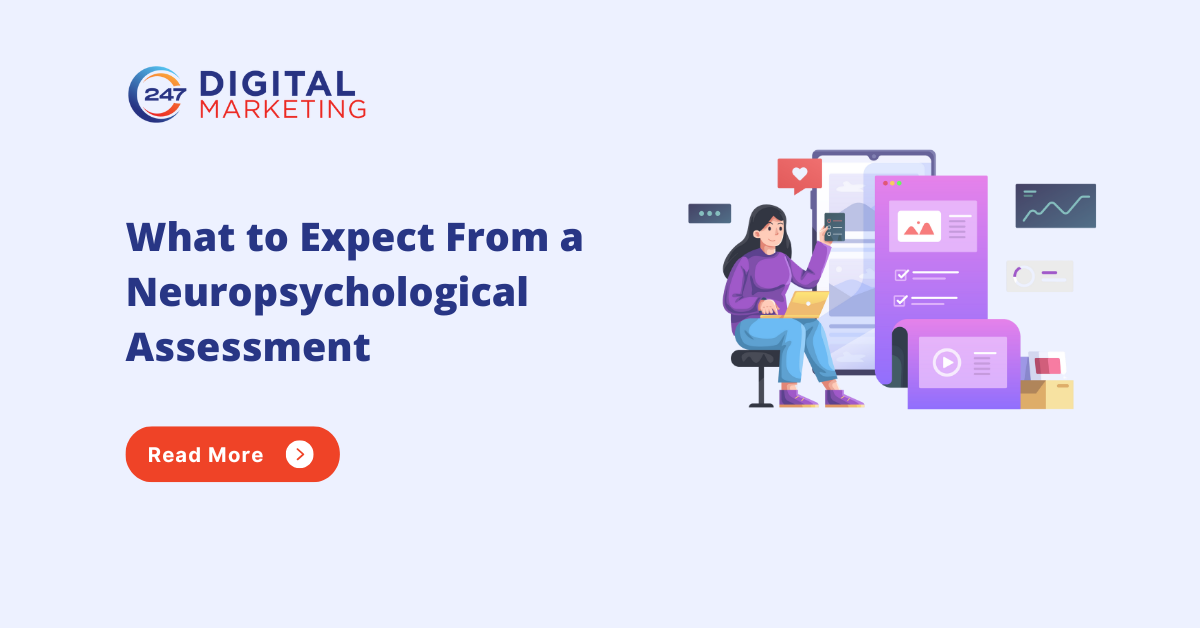
When a person experiences changes in memory, attention, behavior, or cognitive ability, it’s natural to seek answers. These changes can stem from a variety of causes, ranging from attention-deficit disorders and anxiety to neurological injuries or age-related cognitive decline. To get to the root of these concerns, doctors and psychologists may recommend a Neuropsychological Assessment.
This type of in-depth evaluation offers a comprehensive look at how the brain functions. More than just a series of mental exercises, it provides valuable insights into how someone thinks, feels, remembers, and problem-solves. It’s one of the most powerful tools available in behavioral health and neurology, yet many people feel uncertain about what it entails.
In this article, we’ll demystify the neuropsychological assessment process, explore who can benefit from one, and help you feel more confident if you or a loved one is referred for this kind of evaluation.
What Is a Neuropsychological Assessment?
A neuropsychological assessment is a structured, evidence-based evaluation designed to measure a wide range of brain functions. It is typically conducted by a licensed neuropsychologist who has specialized training in understanding the relationship between brain activity and behavior.
Unlike a routine check-up or mental health screening, this type of assessment provides a deep dive into your cognitive, emotional, and psychological functioning. It can identify subtle changes that might not appear in a standard neurological or physical exam.
If you’re searching for a Neuropsychological Assessment in NJ, for example, you’re likely being referred for testing to better understand complex symptoms such as memory problems, attention difficulties, or mood changes. These tests are often used to confirm or rule out conditions like ADHD, dementia, traumatic brain injury, or learning disabilities.
Why Would Someone Need One?
Neuropsychological assessments can be beneficial at nearly every stage of life. Children, adolescents, adults, and older adults may all be referred for testing, depending on the symptoms or concerns involved.
Some common reasons for referral include:
- Difficulty concentrating or remembering information
- Behavioral or emotional changes
- Learning struggles that persist despite intervention
- Poor academic or job performance
- Changes in speech, movement, or reasoning after a head injury
- Suspected cognitive decline or dementia
Your physician, psychiatrist, neurologist, or psychologist might recommend this type of testing when standard imaging (like MRIs or CT scans) does not explain a patient’s cognitive or emotional changes. It helps paint a clearer picture of brain function and how it’s affecting daily life.
What Does the Testing Measure?
Neuropsychological testing typically evaluates a wide variety of brain functions. The specific tests administered depend on the concerns at hand, but may include:
- Memory and recall
- Language and verbal skills
- Executive functioning (planning, organizing, decision-making)
- Processing speed
- Visual-spatial skills
- Attention and concentration
- Academic skills (reading, writing, arithmetic)
- Mood and personality functioning
Each test is carefully selected to evaluate the functioning of different brain regions. When combined, these results help your clinician develop a comprehensive understanding of your cognitive and emotional profile.
Understanding Cognitive Function Testing
One of the core components of any neuropsychological evaluation is cognitive function testing. These assessments are used to measure how well a person thinks, processes information, and solves problems.
For instance, an individual who struggles to complete tasks at work might be evaluated for deficits in attention or executive functioning. A child who can’t seem to retain math facts might be showing signs of a processing speed disorder. Testing cognitive functions helps pinpoint the nature of these difficulties and guides effective treatment strategies.
Rather than focusing on a single symptom, cognitive testing looks at how various aspects of thinking interact. It can differentiate between conditions that may appear similar on the surface, like ADHD and anxiety, leading to more accurate diagnoses and targeted support.
Behavioral and Emotional Evaluation
Neuropsychological assessments also include a behavioral health evaluation to better understand the emotional and psychological aspects of functioning. This may involve:
- Standardized questionnaires about mood, anxiety, and stress
- Parent or teacher reports (for children)
- Observations during testing
- Personal interviews
Emotions, trauma, and psychiatric conditions can impact cognitive performance in significant ways. For example, depression often leads to difficulty concentrating, which can mimic symptoms of ADHD. By assessing both behavior and emotion, clinicians can avoid misdiagnoses and offer holistic treatment recommendations.
Understanding the full picture, including behavioral health, is essential for effective intervention, especially in children and teens whose emotions are still developing alongside their cognitive abilities.
Neurological Testing for ADHD and Other Conditions
One of the most common uses of neuropsychological evaluations in children and young adults is ADHD testing. These assessments help confirm whether symptoms such as impulsivity, distractibility, or poor time management stem from a true attention disorder, or something else.
While ADHD can sometimes be diagnosed through interviews and symptom checklists, a neuropsychological assessment offers a more objective and nuanced view. It can differentiate ADHD from other conditions that cause similar symptoms, such as anxiety, autism spectrum disorder, or learning disabilities.
The assessment may also identify co-occurring issues, such as executive function deficits or emotional regulation challenges, that often accompany ADHD. This insight helps create a more effective treatment plan that goes beyond basic medication or behavior modification.
Testing for Memory Loss and Age-Related Concerns
Memory problems are another common reason adults seek neuropsychological testing. Mild forgetfulness is normal with age, but persistent memory issues may signal something more serious. In these cases, psychological testing for memory issues becomes a vital tool in early diagnosis and care planning.
These tests can help distinguish between normal age-related decline, mild cognitive impairment (MCI), and early-stage dementia. The earlier a diagnosis is made, the more effective treatment and lifestyle changes can be in preserving brain function.
Memory assessments can also provide peace of mind for individuals who fear the worst but are actually functioning within normal limits for their age. In either case, testing removes the guesswork and empowers patients to make informed choices about their health and future.
What to Expect During the Assessment
Neuropsychological evaluations typically take between 4 to 8 hours and may be broken into multiple sessions. During testing, you or your child will be asked to complete a series of tasks, puzzles, and questionnaires. Some tests are timed, while others assess accuracy or strategy.
Most sessions begin with an in-depth interview covering:
- Medical history
- Developmental milestones (for children)
- Educational or occupational concerns
- Emotional and behavioral history
The testing itself is conducted one-on-one in a quiet, controlled environment. The goal is to measure your best ability in various cognitive domains, not to “pass” or “fail.”
After the assessment, the neuropsychologist will compile the data, interpret the results, and produce a detailed report. This report includes diagnoses (if applicable), summaries of cognitive strengths and weaknesses, and concrete recommendations for school, work, or therapy.
How Results Are Used
The value of neuropsychological testing lies not just in identifying problems but in building pathways for growth. Results are used to:
- Guide educational accommodations (like IEPs or 504 Plans)
- Inform treatment plans for mental health conditions
- Support applications for disability benefits
- Monitor changes over time following injury or illness
- Provide documentation for academic or workplace support
Results may also be shared with other professionals, such as therapists, educators, or neurologists, to help coordinate care across disciplines.
Conclusion: Clarity Through Assessment
Facing cognitive or behavioral changes can feel overwhelming, but a neuropsychological assessment transforms uncertainty into understanding. Whether you’re exploring academic difficulties, emotional challenges, or memory concerns, this comprehensive evaluation offers clear answers and a path forward.
By identifying how the brain is functioning and where support is needed, individuals and families gain the tools to make informed decisions about education, treatment, and long-term care. The goal is not just diagnosis, but empowerment: helping every person function at their best and live with confidence in their capabilities.
If you or a loved one has been referred for testing, know that the process is thoughtful, collaborative, and designed to support your well-being every step of the way.
Mitesh Patel is the co-founder of 247 Digital Marketing, LawFirm Marketing and a columnist. He helps companies like Emerson and other top Fortune 500 compnies to grow their revenue.



